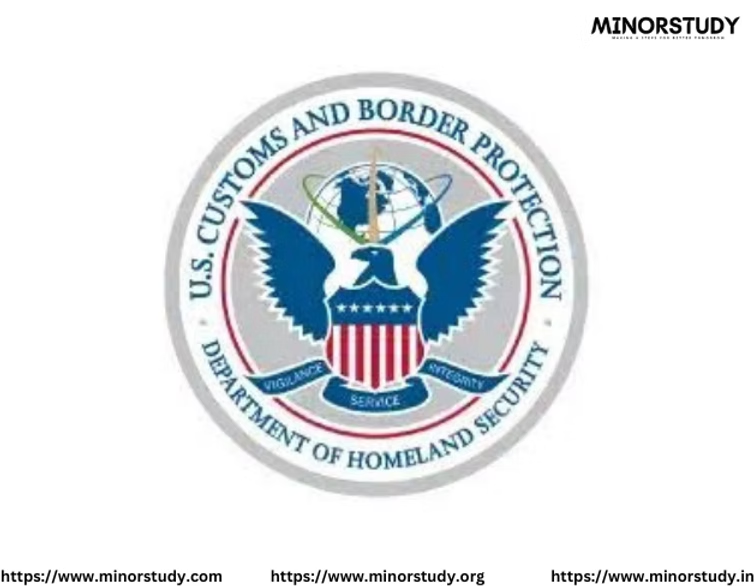The U.S. Department of Homeland Security (DHS) is a federal agency established to safeguard the United States from a wide range of threats, including terrorism, natural disasters, cyberattacks, and border security challenges. It was created in response to the September 11, 2001, terrorist attacks and integrates numerous federal agencies to enhance national security and emergency response capabilities.
- Overview
- Core Responsibilities
- Key Components
- 1. Federal Emergency Management Agency (FEMA)
- 2. U.S. Customs and Border Protection (CBP)
- 3. U.S. Immigration and Customs Enforcement (ICE)
- 4. Transportation Security Administration (TSA)
- 5. Cybersecurity and Infrastructure Security Agency (CISA)
- 6. U.S. Secret Service (USSS)
- 7. U.S. Coast Guard (USCG)
- 8. Federal Law Enforcement Training Centers (FLETC)
- Major Achievements
- Challenges
- Significance
Overview
Established: November 25, 2002 (Homeland Security Act of 2002).
Headquarters: Nebraska Avenue Complex, Washington, D.C.
Mission: “To ensure a homeland that is safe, secure, and resilient against terrorism and other hazards.”
Motto: With honor and integrity, we will safeguard the American people, our homeland, and our values.
Core Responsibilities
Counterterrorism and Threat Prevention:
Preventing terrorist attacks and mitigating threats to national security.
Collaborating with international and domestic partners to combat extremism.
Border Security and Immigration Enforcement:
Securing U.S. borders from illegal immigration, drug trafficking, and human smuggling.
Managing immigration services and enforcing immigration laws.
Cybersecurity:
Protecting government and critical infrastructure from cyberattacks.
Enhancing national cybersecurity resilience through public-private partnerships.
Disaster Response and Recovery:
Managing federal disaster response efforts through agencies like FEMA (Federal Emergency Management Agency).
Coordinating recovery efforts for natural and man-made disasters.
Safeguarding Critical Infrastructure:
Protecting essential systems and facilities, such as power grids, transportation, and financial institutions.
Customs and Trade Security:
Ensuring safe and lawful trade and travel across U.S. borders.
Screening goods and travelers to prevent the entry of illicit materials or persons.
Key Components
DHS is composed of various operational and support agencies, including:
1. Federal Emergency Management Agency (FEMA)
Responsible for disaster preparedness, response, and recovery.
Works with state and local governments during emergencies like hurricanes, earthquakes, and wildfires.
2. U.S. Customs and Border Protection (CBP)
Manages border security and facilitates lawful international trade and travel.
Prevents illegal crossings and the smuggling of goods into the U.S.
3. U.S. Immigration and Customs Enforcement (ICE)
Focuses on enforcing immigration laws and combating cross-border crime.
Targets human trafficking, drug smuggling, and financial crimes.
4. Transportation Security Administration (TSA)
Oversees security at airports and in transportation systems.
Implements passenger screening and cargo inspection.
5. Cybersecurity and Infrastructure Security Agency (CISA)
Defends against cyber threats and strengthens critical infrastructure security.
Provides guidance to public and private organizations on cybersecurity best practices.
6. U.S. Secret Service (USSS)
Protects the President, Vice President, and other high-ranking officials.
Investigates financial crimes, including counterfeiting and cyber fraud.
7. U.S. Coast Guard (USCG)
Ensures maritime safety, security, and environmental stewardship.
Operates under DHS during peacetime but can be transferred to the Navy during wartime.
8. Federal Law Enforcement Training Centers (FLETC)
Provides training for law enforcement officers from various federal, state, and local agencies.
Major Achievements
Post-9/11 Security Enhancements:
Increased airport and border security measures, including TSA’s PreCheck and advanced screening technologies.
Hurricane Katrina Response:
Though criticized initially, DHS made significant improvements to FEMA’s disaster response capabilities.
Cybersecurity Improvements:
Created CISA to centralize efforts to protect critical infrastructure from cyber threats.
Immigration Reforms:
Implemented advanced biometric systems for identifying and tracking non-citizens entering the U.S.
Challenges
Balancing Security with Privacy:
DHS faces scrutiny over surveillance programs and immigration enforcement practices.
Cyber Threats:
Rapidly evolving cyber threats require constant adaptation and investment in new technologies.
Disaster Preparedness:
Managing responses to increasingly frequent and severe natural disasters due to climate change.
Border Management:
Addressing humanitarian concerns and operational challenges at the U.S.-Mexico border.
Significance
U.S. Department of Homeland Security: DHS is crucial to the U.S.’s ability to detect, prevent, and respond to threats, both domestic and international. Its multi-agency approach ensures coordination across federal, state, and local governments, as well as with private sector partners, to safeguard the nation’s security and resilience.









I was just seeking this info for some time. After six hours of continuous Googleing, at last I got it in your web site. I wonder what is the lack of Google strategy that don’t rank this kind of informative web sites in top of the list. Usually the top web sites are full of garbage.